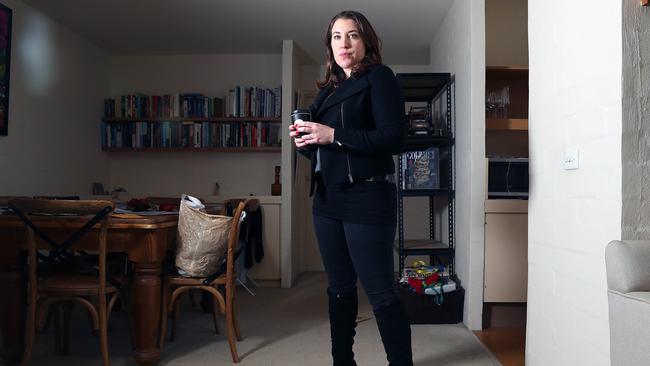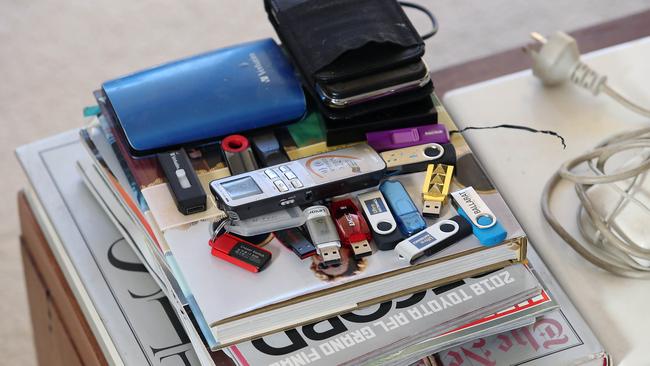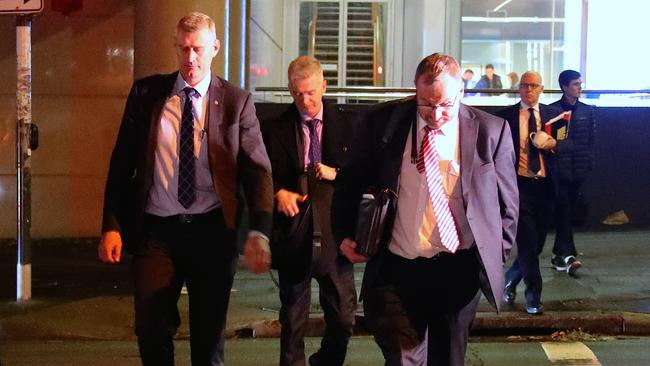Press freedom: Annika Smethurst warrant-raid win is a hollow victory for freedom of press


The point has now been made that the AFP were wrong to enter Smethurst’s home armed with a flawed search warrant. But the High Court has made another point: it has allowed the AFP to retain the information it seized during that unlawful raid.
This should concern everyone, not merely the media. The AFP has been allowed to barge into a private home without a lawful reason, seize private property and treat that property as its own.
Even common thieves, when sprung, are required to give back their ill-gotten gains. The AFP, it seems, are now to be treated as legally privileged burglars - free to pillage and keep the property of others.
This was too much for High Court judge Michelle Gordon whose separate judgement would have required the return of the information the AFP took from Smethurst’s telephone. The judge warned that officers of the commonwealth “are subject to the law and must obey the law”.
The police, not the reporter, were on the wrong side of the law throughout that raid. But the lack of consequences means the AFP now has a special status that approaches impunity.
Smethurst, who works for News Corp Australia, publisher of The Australian, is unlikely to be the last journalist subjected to high-handed, legally flawed conduct by a police force that knows it can benefit from its unlawful actions.
Press freedom in Australia was in trouble before this decision and it remains in trouble.
The warrant that authorised this raid had been issued by a new magistrate at an uncontested hearing where the only argument heard was that of the police.

The High Court struck it down because of errors that were apparent on the face of the document. The court invoked no high principle about free speech or the role of the media. It struck down no law and invoked no implied term from the Constitution.
This a narrow response to a big issue. It’s up to Morrison to do better than this.
The only way to prevent similar conduct is for the government to accept the logic of having the AFP’s applications for search warrants against the media subjected to contestable hearings.
This modest, procedural change would increase the likelihood that errors would be weeded out while ensuring the media would have an opportunity to argue its case.
The context of this affair is important: the AFP raided Smethurst’s Canberra home in June last year after she reported government departments had been considering a secret plan that would have allowed the Australian Signals Directorate to spy on Australians for the first time.
She was doing what journalists should do - holding governments to account and informing the community. That should be encouraged by federal law, not punished.

Smethurst and News Corp Australia had argued that the provision of the Crimes Act that underpinned the raid “transfers to the largely unconstrained discretion of the executive the ability to decide what is covered” as a government secret.
They had told the High Court that the secrecy law at the heart of the case applies regardless of the motivation for the disclosure, whether it harmed the nation, was wholly innocuous or merely embarrassing.
However, the High Court based its decision on the fact that the warrant had misstated the substance of a provision of the Crimes Act and failed to state the offence to which the warrant related with sufficient precision.
The decision follows the failure in February of the ABC’s challenge to the legal basis for an AFP raid on the broadcaster’s Sydney newsroom.
Taken together, these decisions strengthen the argument of the mainstream media that press freedom in Australia receives less legal recognition than in comparable countries.
The media industry’s Right to Know coalition has presented the government with six changes that it says would address that problem. Chief among them is the need for contestable warrant hearings.







The High Court’s decision striking down the legal basis for last year’s police raid on the home of journalist Annika Smethurst is a hollow victory. It delivers no lasting benefits for press freedom and rewards unlawful conduct by the Australian Federal Police.